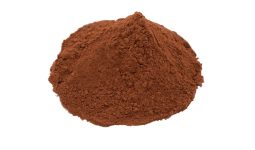Excessive drinking is an unhealthy habit that has lots of health disadvantages; poor appetite and malnutrition are among the health hazards caused by excessive drinking because it depletes the body of essential nutrients and vitamins.
Malnutrition is a medical condition that results from not being nutritionally deficient; it makes people underweight and it is the leading cause of illnesses and death worldwide.
How Alcohol cause affects appetite and leads to malnutrition?
It increases the cravings for fatty foods: When alcohol is consumed; it produces the hunger increasing hormone gelanin and this leads to hunger for high fatty foods which is dangerous to the body. An individual who consumes alcohol excessively has greater amount of this hormone and this increases the person’s desire for high fat foods.
It leads to poor taste: Excess intake of alcohol impairs the taste of food and this affects the desire for food which will eventually lead to poor eating habits; it also disconnects one from hunger. It makes the affected individual to consume less of healthy foods like whole grains; fruits, vegetables and plant proteins; they overeat junk foods and intoxication dampens the ability to make healthy food choices.
It leads to loss of appetite: This is a frequent occurrence in alcoholics; persistence loss of appetite leads to low body weight and malnutrition.
It leads to fatty liver: This result from excessive consumption of alcohol can affect the nutritional balance of the body. It affects the metabolism of nutrients consumed as the liver loses its ability to retain folate; this leads to folate being excreted in the urine by the kidneys leading to a deficiency of folate that it threatening to the health, especially the heart and digestive system.
A deficiency in folate also cause cancer, impairment and deficiencies of other B vitamins like thiamine; this leads to Wernicke-Korsakoff syndrome which affects the eye muscle, impair memory and coordination and damage the nerves. Acetaldehyde is a byproduct produced by alcohol metabolism; it causes a deficiency in vitamin B6 which leads to anemia because this vitamin is needed for the production of new red blood cells.
It leads to excessive buildup of toxins in the body: The byproducts of alcohol are very toxic to the body; they cause the stomach cells to secrete too much gastric acid and histamines. Histamines cause inflammation in the body and excess gastric acid irritates the linings of the esophagus and stomach and this increases the formation of stomach ulcers and it can also affect the absorption of nutrients.
It affects the pancreas: Alcohol reduces the secretion of digestive enzymes from the pancreas and this will affect proper digestion of food.
It depletes the body of vital nutrients: When alcohol is metabolized by the liver; the liver uses vitamin B1, and other B vitamins to metabolize it, this make these vital nutrients unavailable for essential purposes.
Alcohol also interferes with the absorption and storage of B vitamins; it also triggers the release of large doses of vitamin A into the bloodstream which can lead to night blindness when the vitamin A store has been used up.
It also expels essential water soluble minerals like zinc, magnesium and potassium through the urine.








